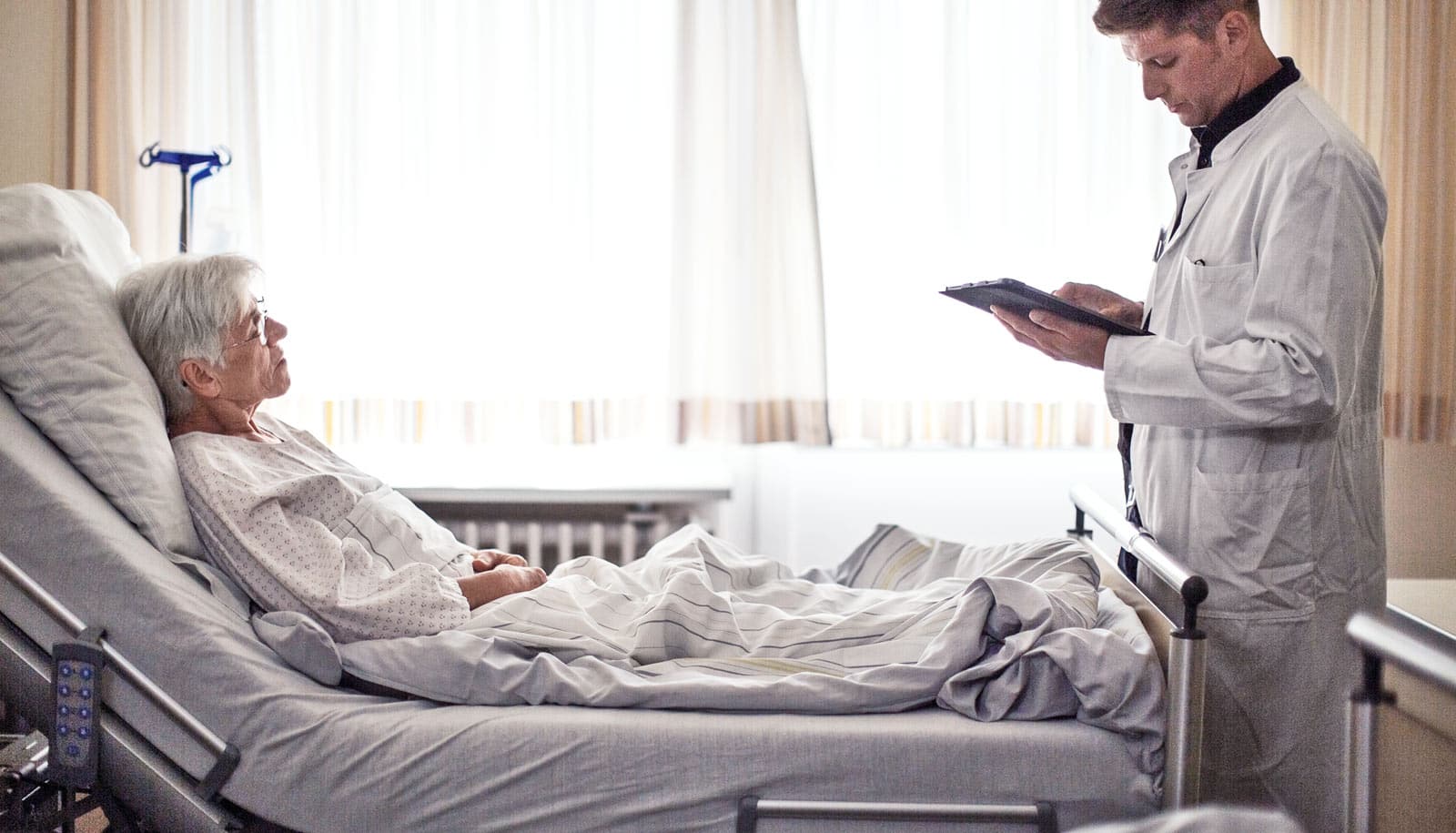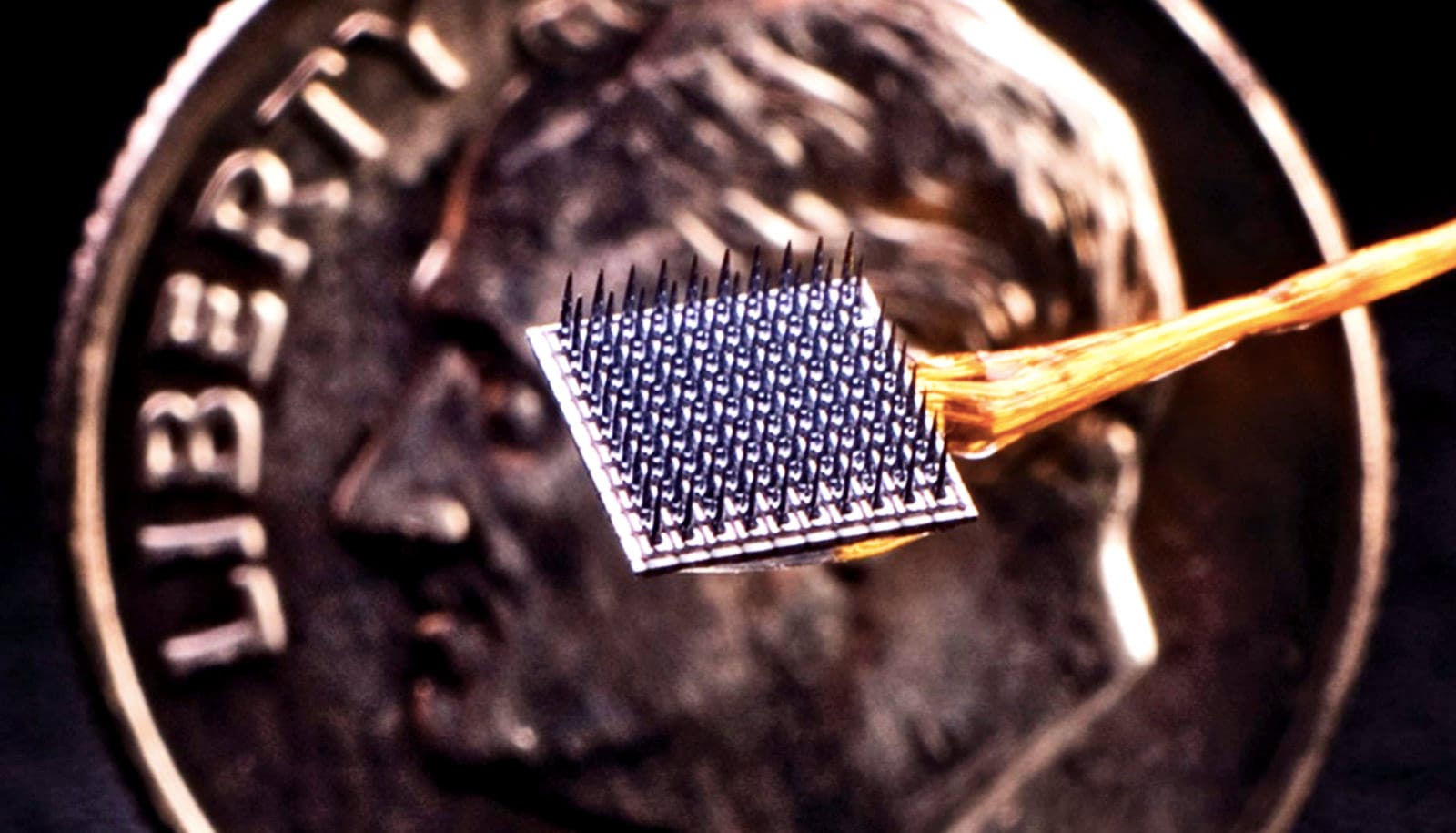The diagnosis of aphasia for actor Bruce Willis has put the condition in the spotlight. Here, researchers dispel some common myths.
Until recently, many Americans were unfamiliar with aphasia. Roughly 2 million people in the United States have aphasia, in various forms. The language disorder, whether mild or severe, can be debilitating. Willis’ recent diagnosis prompted his retirement from a decades-long career in film.
“Aphasia is a loss of language, not intellect.”
“Bruce Willis’ recent diagnosis of aphasia brings a much-needed spotlight to this communication disorder,” says Jacqueline Laures-Gore director of Georgia State University’s Aphasia and Motor Speech Disorders Lab. “Public awareness of aphasia is poor despite a higher prevalence than Parkinson’s disease and multiple sclerosis.”
Laures-Gore and her colleagues are conducting research and developing novel interventions to improve communication options and treatments for aphasia. Here, she and Aimee Dietz, chair of Georgia State’s department of communication sciences and disorders and an aphasiology expert, offer some insight into the diagnosis and what it means:
Many people had never heard of aphasia until recently, but it affects millions of Americans. What is it and how is it usually diagnosed?
Laures-Gore: Aphasia is a language disorder that is neurologic in origin (often resulting from stroke) and can affect reading, writing, verbal expression, and understanding others (auditory comprehension). It is not a sensory problem or problem of intellect. Aphasia can affect many aspects of a person’s life including employment, recreation, and relationships within the family and with friends.
Aphasia is diagnosed by a speech-language pathologist who is trained to administer tests that engage the individual in different language tasks, such as describing a picture, answering questions, and following directions. They also gather information about the person’s health history. Imaging of the brain through MRI (for instance) and consultations with neurologists can also be helpful in diagnosis. Speech-language pathologists who diagnose aphasia hold the Certificate of Clinical Competence from the American Speech-Language-Hearing Association.
What are some of the myths or misconceptions about aphasia that you can help clear up?
Dietz: A common “hashtag” in the language community is “Aphasia is a loss of language, not intellect.” People easily interchange the words language and cognition, and this is damaging to those with aphasia. People with aphasia are typically able to lead full lives, including participating in decisions about their life and medical care, with proper accommodations. Thanks to the Americans with Disabilities Act, we have elevators, ramps, wheelchair seating, and closed-captioning and sign-language interpreters just about everywhere we go. People with aphasia need “ramps” to access the community as well.
One myth regarding stroke-induced aphasia is that recovery only occurs in the first year following the stroke. This is 100% false. There are many stroke survivors who have worked hard at recovery for decades post-stroke and are shining examples of neural plasticity. Most aphasia treatment studies are conducted in the chronic phase of stroke recovery, which is at least six months post-stroke—but most are 12 months post-stroke or more. This is because, at this point, much of the swelling and spontaneous self-healing has slowed, which allows researchers to assign any improvement in language to treatment.
Over the last few decades there has been an explosion of aphasia treatment development and documentation of behavioral change. It is important that we distinguish between (1) a slowing of the spontaneous recovery and healing of the brain with (2) treatment-induced recovery that the brain is capable of as long as the person lives and is able to access rehab services.
With a severe case of aphasia, what would you expect the patient and family to experience?
Laures-Gore: For the person living with aphasia, their family and friends, there is a period of adjustment which requires first understanding what aphasia is and then how to best communicate. Everyone involved will be learning how aphasia is most affecting the person. For instance, is reading more affected than verbal expression, or is understanding others more affected than writing? All of the language impairments are accompanied by psychosocial changes including changes in identity and relationships. Also, because of the low public awareness of what aphasia is, the person living with aphasia and family will confront a lack of awareness and understanding in their community.
New research is exploring how alternative communication and other mind-body interventions could help. What’s the science behind these treatments?
Dietz: In the Language Recovery and Communication Technology Lab, we are developing and testing alternative interventions for people with aphasia, including augmentative and alternative communication (AAC) and mind-body interventions. More specifically, the NIH-funded lab is currently examining the role of AAC as a language recovery tool for people with chronic aphasia, using neuroimaging technologies to identify neurobiomarkers for AAC-induced language recovery. We believe that AAC may serve as a dual-purpose tool—one that supports communication and facilitates self-cueing by harnessing the relatively intact visual and motor systems of the brain. As a result of the pandemic, we have added an emphasis of understanding how AAC can be successfully administered to people with aphasia via teletherapy.
I am also a certified yoga teacher and in collaboration with researchers, clinicians, stroke survivors, co-survivors, and practitioners across the US, we’ve cultivated a new line of research that seeks to understand how mind-body practices, including adapted yoga, might be harnessed to build resilience and coping for people with post-stroke aphasia and their co-survivors. Right now, we are running a longitudinal study to examine how an adapted yoga program, delivered in a hybrid format, can impact the resilience, stress, sleep quality, pain management, and word fluency in stroke survivors with aphasia.
Stress and other lifestyle factors can impact the severity of the condition. What are some treatment options and interventions you’ve discovered that can be helpful for those who have aphasia?
Laures-Gore: We are exploring the effect of stress on language performance in people with aphasia. Stress may or may not always be bad; it could be that stress can energize the language system. My lab is working on clarifying this issue. We are developing methods to measure stress including self-assessment, use of stress biomarkers, and questionnaires to assess coping strategies. Integrative health practices including meditation, addressing spirituality, laughter, and yogic breathing may be helpful with aphasia, but we are just beginning to explore these approaches. We will know more in the coming years as we study these interventions. Also, support can be very beneficial for recovery in people with aphasia and family/friends.
There are several different types of aphasia. Can you share how they differ?
Dietz: When people experience aphasia due to stroke, tumor, or head injury, they experience a sudden onset of language impairment. Aphasia of this nature tends to be chronic yet stable (or improving with rehabilitation), so long as the underlying medical condition that precipitated the aphasia is well-managed.
On the other hand, primary progressive aphasia, or PPA, is a progressive language disorder that can be subtle in nature and is not caused by a stroke, tumor, or head injury. Rather, PPA is due to atrophy, or withering of brain tissue in the areas responsible for language. Often, the underlying cause is unknown, but there can be a genetic component. Over time, the person often develops dementia due to the continued atrophy of the brain.
What does recovery look like for people who have aphasia? Is a full recovery possible?
Laures-Gore: There are many variables associated with recovery of aphasia resulting from stroke. Neuroplasticity is affected by age, participation in speech-language therapy, access to services, motivation, and other factors. Because each case of aphasia and each person is different, there is no definite answer to this question. Recovery really looks different for everyone.
Dietz: There are reports that suggest that approximately 30% of people with post-stroke aphasia “fully recover,” however this is defined by a test. It’s important to remember that a test cannot tell who has recovered since severity is not the only indicator of recovery. In fact, some of the most devastating stories of aphasia are those with the “mildest” and almost undetectable cases of aphasia. Depending on their vocation or hobbies, the slightest challenge with word retrieval could force them into retirement or oust them from leisure activities. In other situations, I have witnessed people with very severe aphasia living life to the fullest—making it hard for me to keep up. We have seen some patients establish nonprofits like the Aphasia Recovery Connection. They also participate in research and engage in public speaking events to raise awareness. In essence, they have learned how to renegotiate their self-identity, which is the essence of resilience and recovery.
Source: Georgia State University



